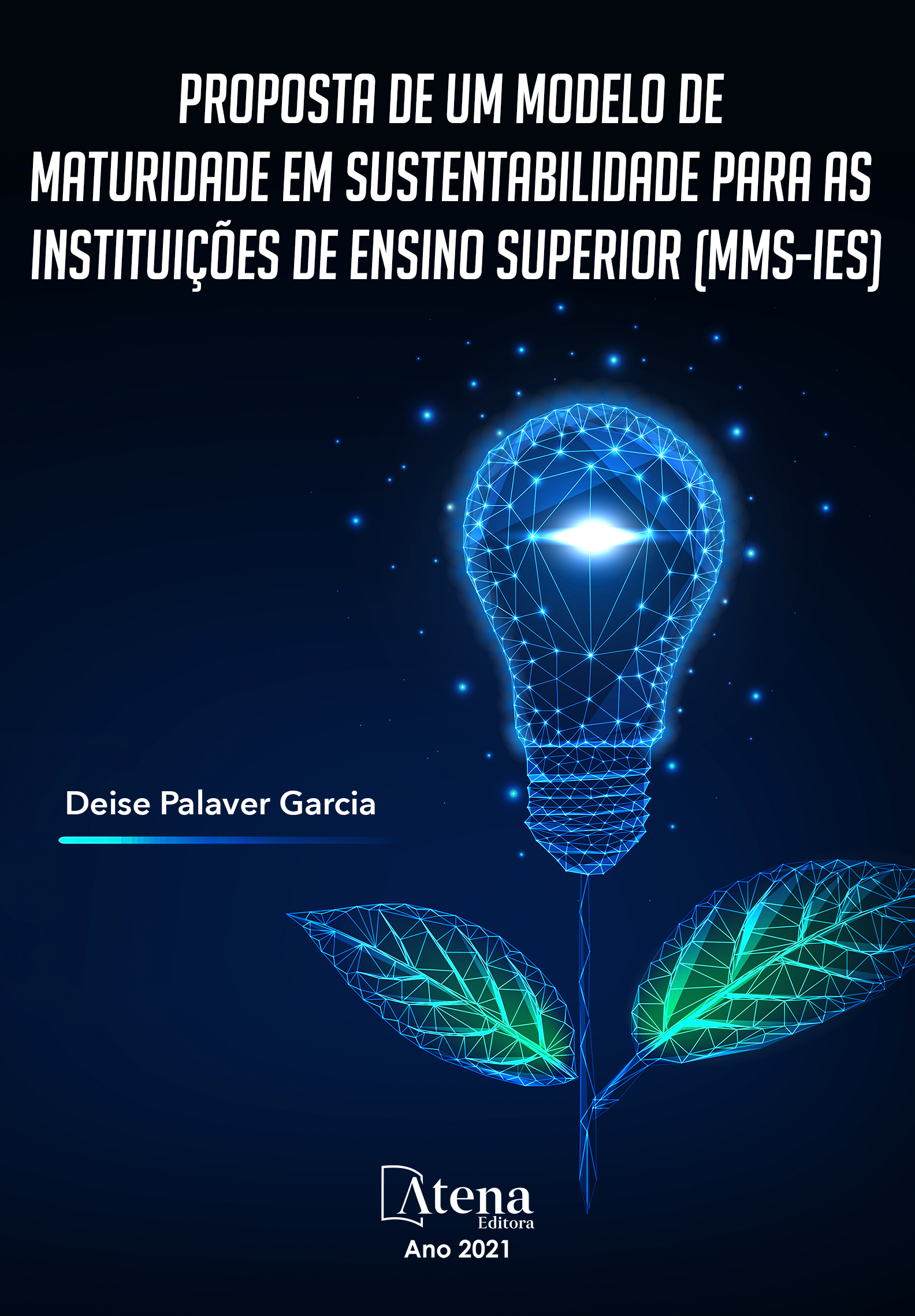
PROPOSTA DE UM MODELO DE MATURIDADE EM SUSTENTABILIDADE PARA AS INSTITUIÇÕES DE ENSINO SUPERIOR (MMS-IES)
As mais diversas organizações têm sido desafiadas a contribuir para com o Desenvolvimento Sustentável, principalmente as Instituições de Ensino Superior, pois são consideradas um dos agentes capaz de promover as mudanças que a sociedade precisa para alcançar a sustentabilidade. Com o intuito de institucionalizar a sustentabilidade, ao longo do tempo, várias IES (do mundo todo) assinaram vários documentos/declarações demonstrando seu comprometimento com a causa. Mas para que essas intenções aconteçam na prática, primeiramente, mudanças devem ocorrer no âmbito dessas instituições, precisam mudar a forma como educam, pesquisam, se relacionam com a comunidade externa, e principalmente, como desenvolvem o próprio processo de gestão e operações. No contexto brasileiro há iniciativas no setor público, como a Agenda Ambiental da Administração Pública (A3P), o programa procura impulsionar práticas sustentáveis, embora o programa não seja voltado para as IES, algumas instituições têm seguido as orientações da agenda na dimensão de gestão e operações de seus campi. As iniciativas são muitas, no entanto, não se sabe em que patamar está o processo de DS no âmbito das IES que adotam a A3P. Sendo assim, essa pesquisa tem por objetivo propor um Modelo de Maturidade em Sustentabilidade para as Instituições de Ensino Superior. Para este trabalho foi adotado como método de pesquisa a análise bibliográfica e a pesquisa Survey. Como resultado deste trabalho, é apresentado o Modelo de Maturidade em Sustentabilidade para Instituições de Ensino Superior (MMS-IES), sua aplicação demonstrou que as IES investigadas, nas dimensões Ensino, Pesquisa e Extensão ainda estão no Estágio 1, caracterizado com apresentação de um comportamento reativo, e na dimensão Gestão e Operações estão no Estágio 2, caracterizado principalmente pela adoção de sistemas ecoeficientes.
PROPOSTA DE UM MODELO DE MATURIDADE EM SUSTENTABILIDADE PARA AS INSTITUIÇÕES DE ENSINO SUPERIOR (MMS-IES)
-
DOI: 10.22533/at.ed.746210906
-
Palavras-chave: Desenvolvimento Sustentável, maturidade, universidade
-
Keywords: Sustainable Development, maturity, university
-
Abstract:
The most diverse organizations have been challenged to contribute to Sustainable Development, especially the Higher Education (HE), as they are considered one of the agents capable of promoting the changes that society needs to achieve sustainability. With the purpose to institutionalize sustainability, over the years, several universities have signed several documents / declarations demonstrating their commitment to the cause. But for these intentions to happen in practice, first, changes must occur within these institutions, they need to change the way they educate, research, relate to the outside community, and especially how they develop the management process itself. In the Brazilian context there are initiatives in the public sector, an example is the Agenda Ambiental da Administração Pública (A3P), the program seeks to promote sustainable practices, although the program is not focused on universities, some institutions have followed the agenda on management and operations of their campuses. The initiatives are many, however, it is not known at what level is the sustainable development process within the scope of institutions that adopting A3P. This research aims to propose a Maturity Model in Sustainability for Higher Education. For this work the bibliographic analysis and Survey research. As a result of this work, the is presented Modelo de Maturidade em Sustentabilidade para Instituições de Ensino Superior (MMS-IES). Its application has demonstrated that the institutions investigated, in the Teaching, Research and Extension dimensions are still in Stage 1, characterized by the presentation of a reactive behavior, and the Management and Operations dimension are in Stage 2, characterized mainly by the adoption of eco-efficient systems.
-
Número de páginas: 120
- Deise Palaver Garcia


